
Since the birth of artificial intelligence, the discussion on how to regulate artificial intelligence has never stopped
But in fact, how to regulate AI is a very complex topic. Different countries and regions also have different regulatory policies and frameworks, such as the EU’s Artificial Intelligence Act and the United States’ Artificial Intelligence Accountability Policy Request for Comments. , China's "Interim Measures for the Management of Generative Artificial Intelligence Services", etc., have put forward some norms and requirements for the definition, classification, risk classification, division of responsibilities, etc. of AI.
At the recent 2023 Web Summit in Lisbon, Portugal, Andrew McAfee, chief research scientist at the MIT Sloan School of Management, brought us a new idea-"permission-free innovation" . This concept is in sharp opposition to many previously proposed plans for artificial intelligence regulation

Dr. Andrew McAfee of MIT
Is "no permission required" really not going to bring disaster?
In this highly watched speech, he mentioned two concepts: upstream governance and permissionless innovation. Among them, upstream governance means to conduct preventive supervision and control of the risks and impacts it may bring before technological innovation
The opposite is permissionless innovation, which refers to the freedom to experiment and explore new technologies and new business models without obtaining permission from the government or other institutions in advance
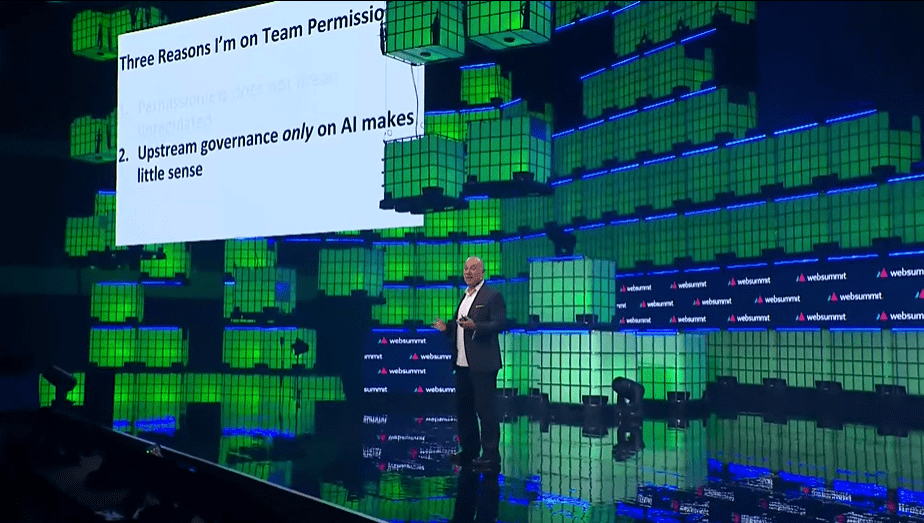
Andrew McAfee clearly supports free innovation for three reasons:
First of all, free innovation does not mean the absence of regulations and supervision.
Andrew believes that this issue is fundamentally a matter of regulatory timing, that is, "preventive governance" should not be carried out, but targeted regulation should be carried out. For example, when smartphones with cameras first emerged, some people used them to secretly take pictures of women's skirts. At that time, because mobile phone cameras were still a new thing, there were no relevant laws to protect women's rights.
Later, the relevant legislative bodies quickly introduced relevant legal regulations to regulate the use of technology after development. In other words, if someone hurts someone with a kitchen knife, management should be strengthened to make the kitchen knife safer, instead of making the kitchen knife lose its edge through regulations
As we often say: "Development problems must be solved through development." The same is true for AI. What we should do is to dynamically solve the problems that arise during the development process of AI. We cannot stop because of some dangers that may arise from the development of AI. We hope to avoid dangers by restricting development. In Andrew's original words, It is necessary to "make it easier to correct mistakes" rather than "to ensure that no mistakes are made", so that supervision can truly play its role.
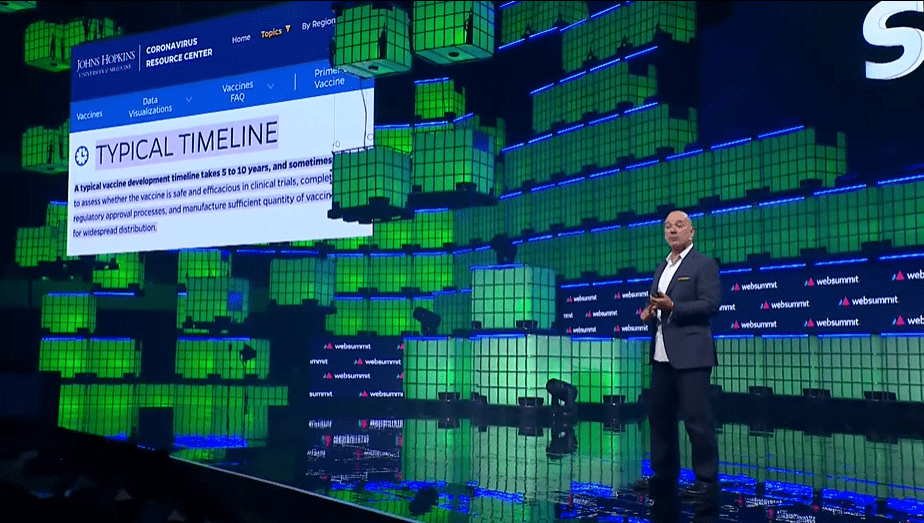
Secondly, Andrew believes that we may have overestimated the harm of AI.
Since the birth of AI, various news about the catastrophe that AI will bring have never disappeared. Many people even list it with nuclear war, pandemics and other things, thinking that AI is like The "Pandora's Box"-like existence has reached a sensational level.
But Dr. Andrew believes that we may be too focused on AI and ignore many other more dangerous technologies. Take biotechnology, for example, where everyone has access to relevant knowledge and equipment without the need for review or permission. If you work in biotech, you can do a lot without review or permission, which is an unreasonable balance.
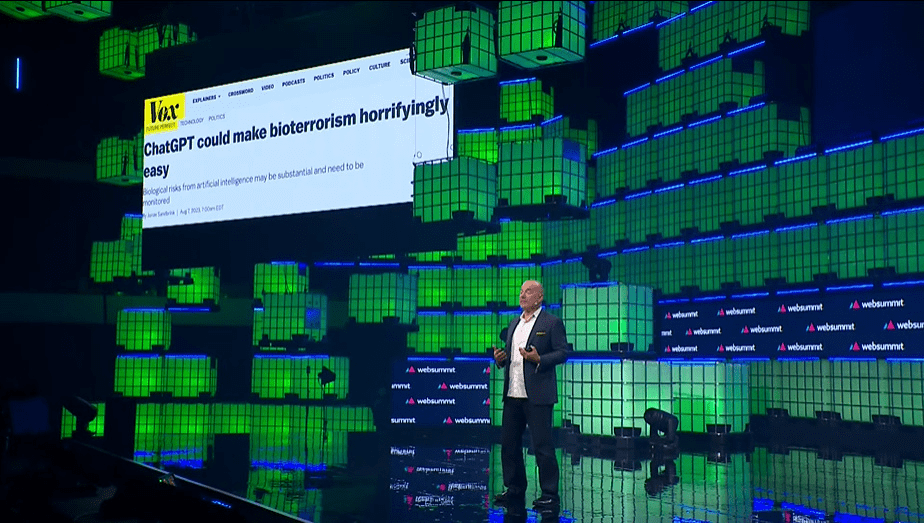
Finally, and perhaps most importantly, this “permissionless innovation” inspires creativity and imagination
We have a basic common sense that innovation is an unpredictable and decentralized activity. This is its core attribute. It is difficult for us to predict the future development direction, especially when AI becomes more and more With the powerful present, the direction of future development may increasingly appear in places we don't notice.
At the beginning of the speech, he also mentioned a language learning software-Duolingo APP, thinking that this can illustrate the advantages of permissionless innovation. This APP utilizes the latest AI technology to assess English proficiency more conveniently, quickly and at low cost. However, if it is required to meet a series of requirements such as data protection, algorithm transparency, human supervision, etc. before the technology is put on the market, it will limit the space and speed of innovation, thereby missing out on good opportunities for innovation.
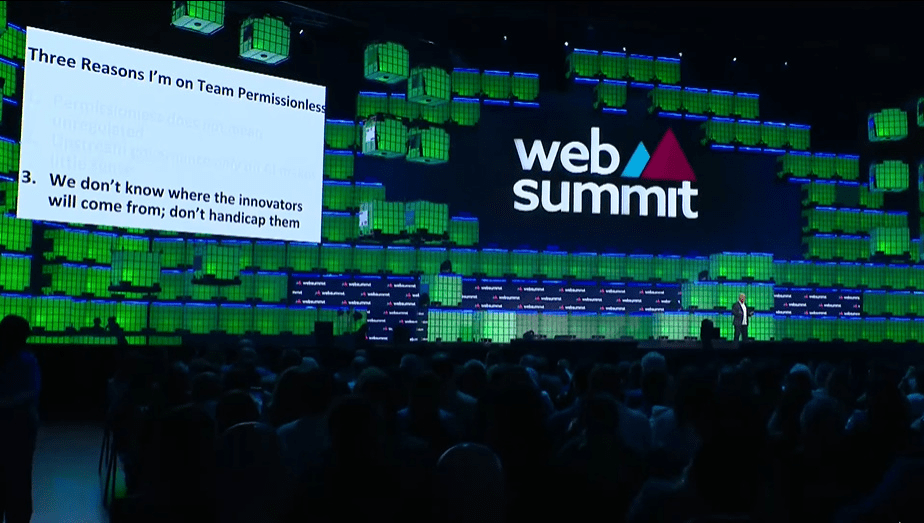
Permissionless innovation is not only used in the field of technology
In fact, this permissionless innovation advantage is not only reflected in the field of artificial intelligence. In his 2023 Web Summit speech, Andrew also mentioned two examples, respectively, about mRNA and Churchill’s dialogue, telling us Demonstrates how innovative, permissionless concepts can be used in other fields
Katalin Kariko, who won the Nobel Prize in Medicine and Biology this year, had left academia for ten years. The direction of mRNA research was generally not optimistic at the time. If there is an idea at this time " If the power of “forward-looking governance (upstream governance)” intervenes, then research in the direction of mRNA is likely to be “forward-looking” abandoned due to funding, projects and many other reasons. This is undoubtedly very serious for the entire human race. heavy losses.
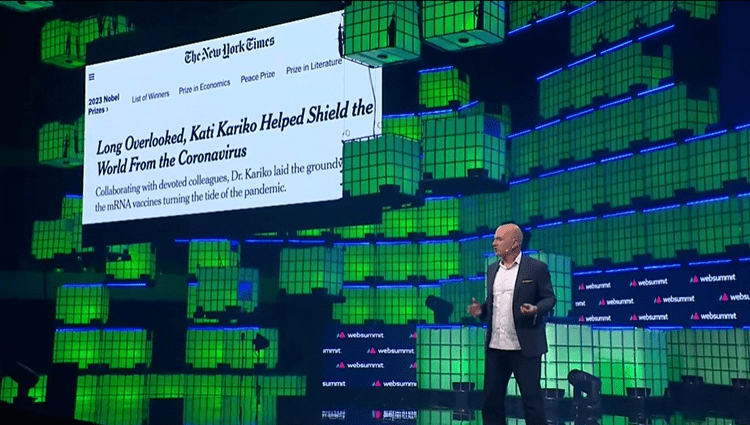
In fact, the basis of "forward-looking governance" lies in the accurate judgment of the future. However, it is clear that no one can predict in which direction the breakout will occur. If you make a wrong judgment, you will lose many opportunities for excellent innovation, which reflects the importance of permissionless innovation concepts
Another example occurred in 1938, on the eve of the outbreak of World War II. The shadow of war enveloped Europe. The then British Prime Minister Chamberlain signed the famous "Munich Agreement", a masterpiece of "appeasement policy" after contacting Hitler. Thinking that peace can be bought by signing a peace agreement with Hitler. But after returning to England, Churchill revealed the truth and broke with Chamberlain and the popular appeasement trend at the time.
He said: "You thought you could make a choice between war and shame (referring to signing a contract with the Nazis), so you chose shame, but war is still inevitable." It can be seen that Mr. Andrew believes that The crisis brought about by AI may not be avoidable through “preventive governance”. In other words, what is before mankind is not the two choices of "enhancing micromanagement" and "chaos", but no matter what the choice is, the chaos caused by AI may be unavoidable.
Of course, this principle also has a well-known Chinese name - abandoning the fundamental and pursuing the inferior. At a time when artificial intelligence has become a surging trend, perhaps it is a better attitude to actively focus on how to face the new wave
The above is the detailed content of MIT Dr. Andrew McAfee reveals new approach to AI regulation. For more information, please follow other related articles on the PHP Chinese website!
 What software is zoom?
What software is zoom?
 MySQL index
MySQL index
 Why is there no signal on the monitor after turning on the computer?
Why is there no signal on the monitor after turning on the computer?
 The role of base tag
The role of base tag
 Introduction to hard disk interface types
Introduction to hard disk interface types
 How to use googlevoice
How to use googlevoice
 The difference between JD.com's self-operated flagship store and its official flagship store
The difference between JD.com's self-operated flagship store and its official flagship store
 What does Matcha Exchange do?
What does Matcha Exchange do?




